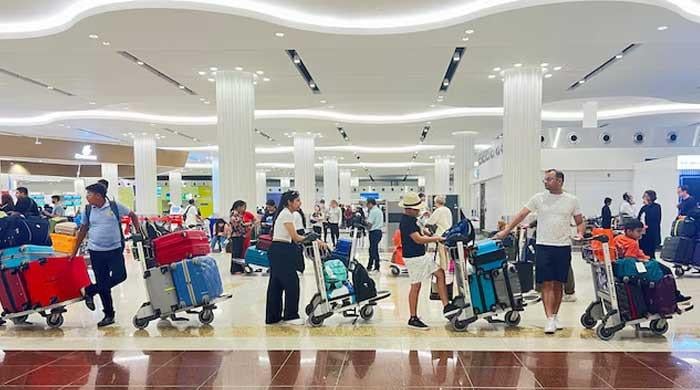Scientists to examine likely link between ‘red tide’, salmon dumping
SANTIAGO: A team of scientists will determine if salmon producers dumping tons of dead fish into the Pacific contributed to a massive "red tide" that is wreaking havoc among fishermen in...
May 14, 2016

SANTIAGO: A team of scientists will determine if salmon producers dumping tons of dead fish into the Pacific contributed to a massive "red tide" that is wreaking havoc among fishermen in southern Chile, the government said on Friday.
The red tide - an algal bloom that turns the sea water red and makes seafood toxic - is a common, naturally recurring phenomenon in southern Chile, though the extent of the current outbreak is unprecedented.
After starting in the Los Lagos region, the bloom has steadily spread outward, depriving many coastal communities of their livelihood. That in turn has led to massive protests and a network of roadblocks set up by fishermen who consider the government´s efforts to mitigate the economic fallout from to bloom to be inadequate.
Scientists say this year´s El Nino weather pattern is likely a key factor in the red tide, as it warms the ocean and creates bloom-friendly conditions.
Along with Chile´s SERNAPESCA fisheries body, they have widely rejected a link between salmon
dumping and the recent outbreak.
Many fishermen and communities in southern Chile, however, are blaming the country´s salmon industry, the world´s second largest, for exacerbating the problem by dumping tons of dead salmon into the ocean after a separate algal bloom killed off an estimated 100,000 tonnes of fish.
"A team of five excellent professionals has been formed that will be working on the task of examining the link between the dumping of salmon and the red tide phenomenon," Economy Minister Luis Felipe Cespedes said in a statement.
Fishermen have blockaded the principal access point to the island of Chiloe for the past three weeks, largely isolating its population of around 140,000 and stranding some tourists.
In recent days, protests have spread to the capital Santiago, resulting in some violent, though sporadic
altercations with police.
Many salmon producers operating in Chile - most of which have facilities on or near Chiloe - are reporting heavy daily losses due to transport disruptions.
Chile´s National Fish Society, an industry group, said in a statement that 20 plants processing a variety of seafood, including the nation´s heavily cultivated mussels, are "totally paralyzed."
Chilean companies AquaChile, Blumar, Camanchaca, Australis Seafoods, Multiexport Foods, Invermar, and the local unit of Norway´s Marine Harvest have salmon farming operations in the nation.











